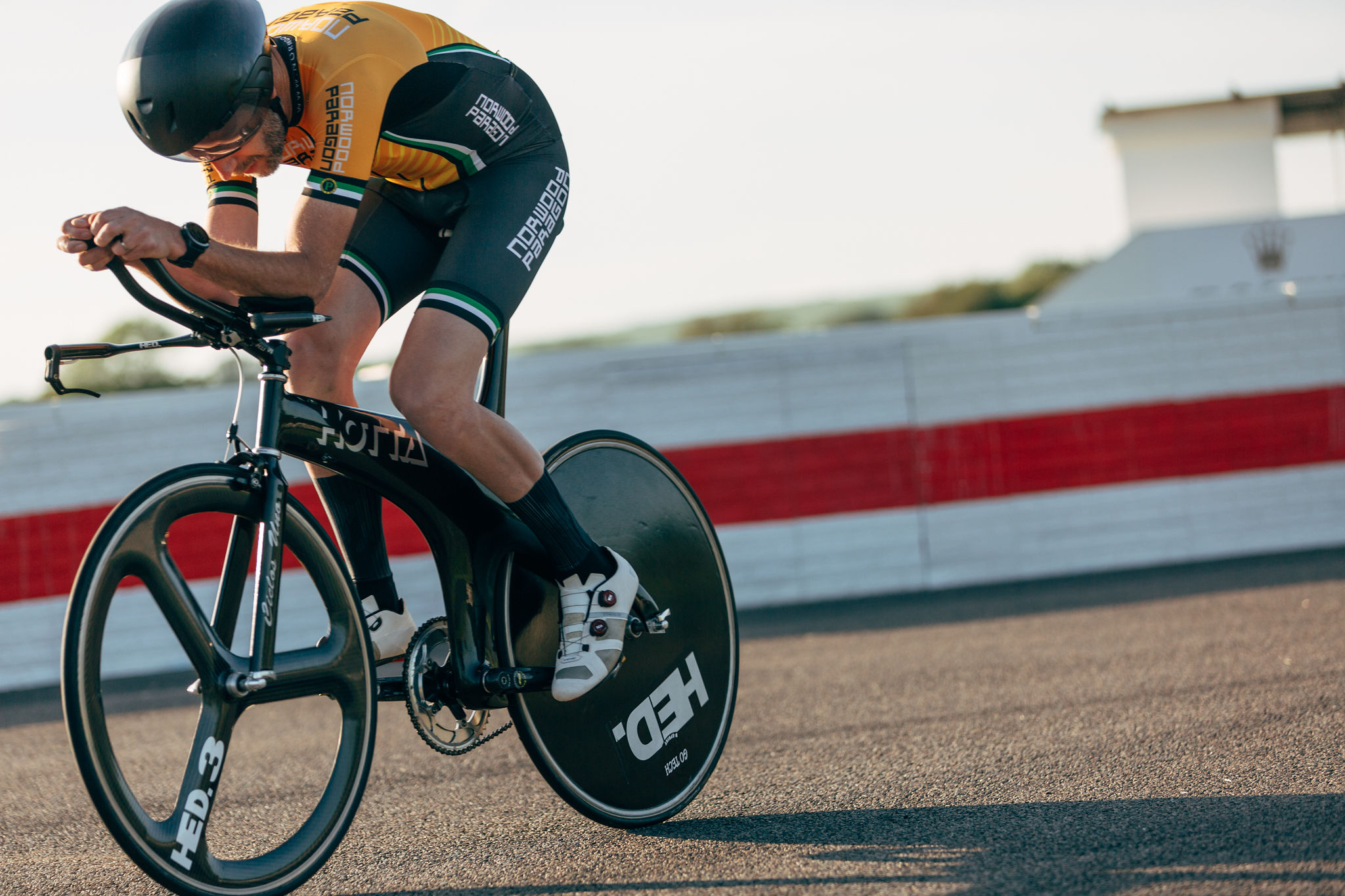Woodrup's 'path racer' reimagines the fixie for the gravel biking generation and we want one
Leeds brand recreates the type of bike that was designed for unpaved roads as well as track racing in the 19th century - and it's surprisingly relevant
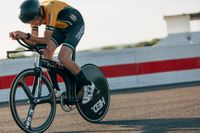
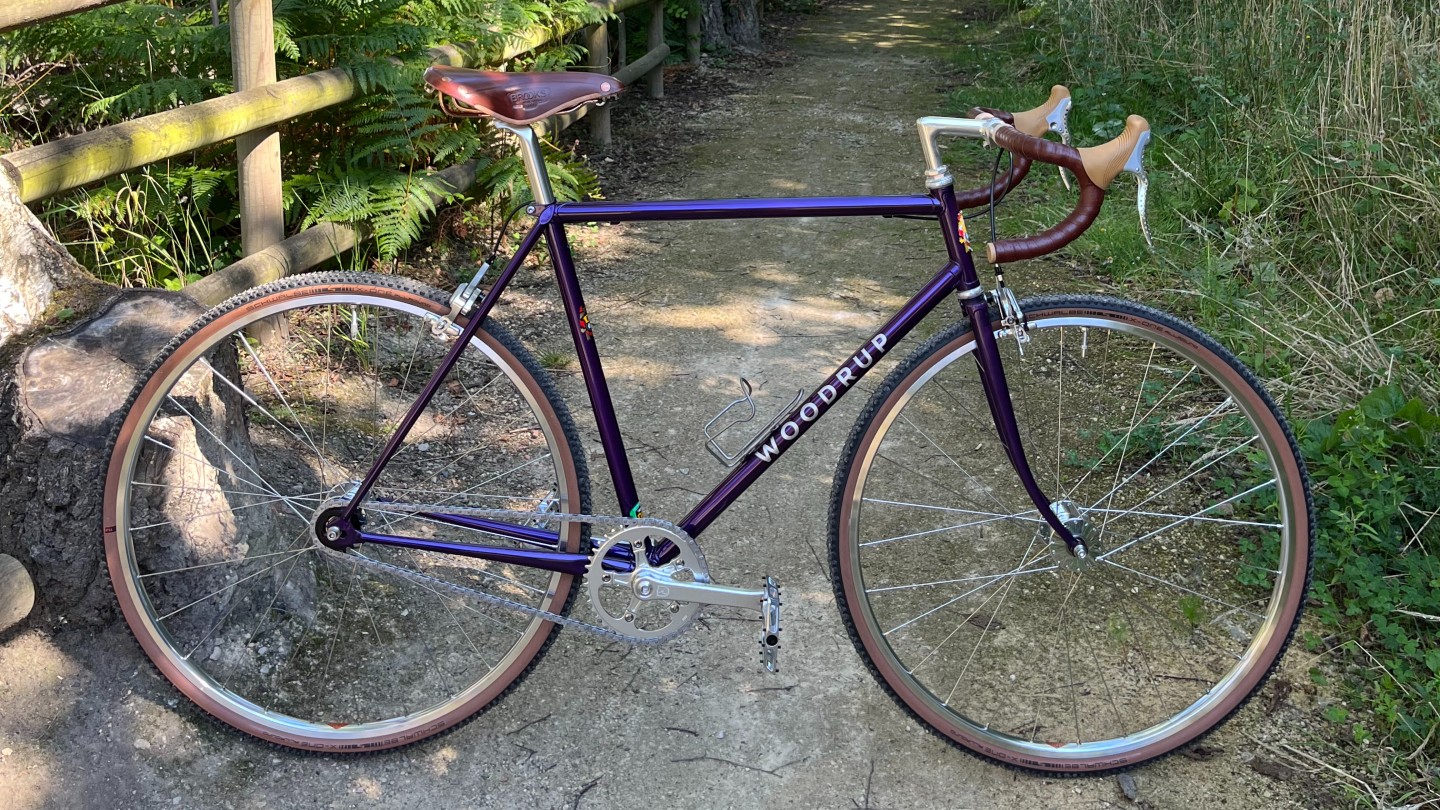
The latest race content, interviews, features, reviews and expert buying guides, direct to your inbox!
You are now subscribed
Your newsletter sign-up was successful
There are Victorian inventions that we might not feel like revisiting - the workhouse and body snatching, for example - but our hairy-cheeked ancestors might have been onto something with the bike they called 'path racer'.
In the gravel-obsessed 2020s it's suddenly more relevant than ever.
The path racer was designed to cruise over the unpaved roads of the era on balloon tyres (once John Boyd Dunlop had invented them) but could easily also be used for the ‘path’ - in other words the outdoor velodrome with its smooth surface.
Woodrup Cycles of Leeds built this modern path racer for a customer who didn't want or need an all-out gravel bike and neither did he want a road bike - he wanted a bike for a ratio of about 60/40 road/‘light gravel’ and wanted one gear.
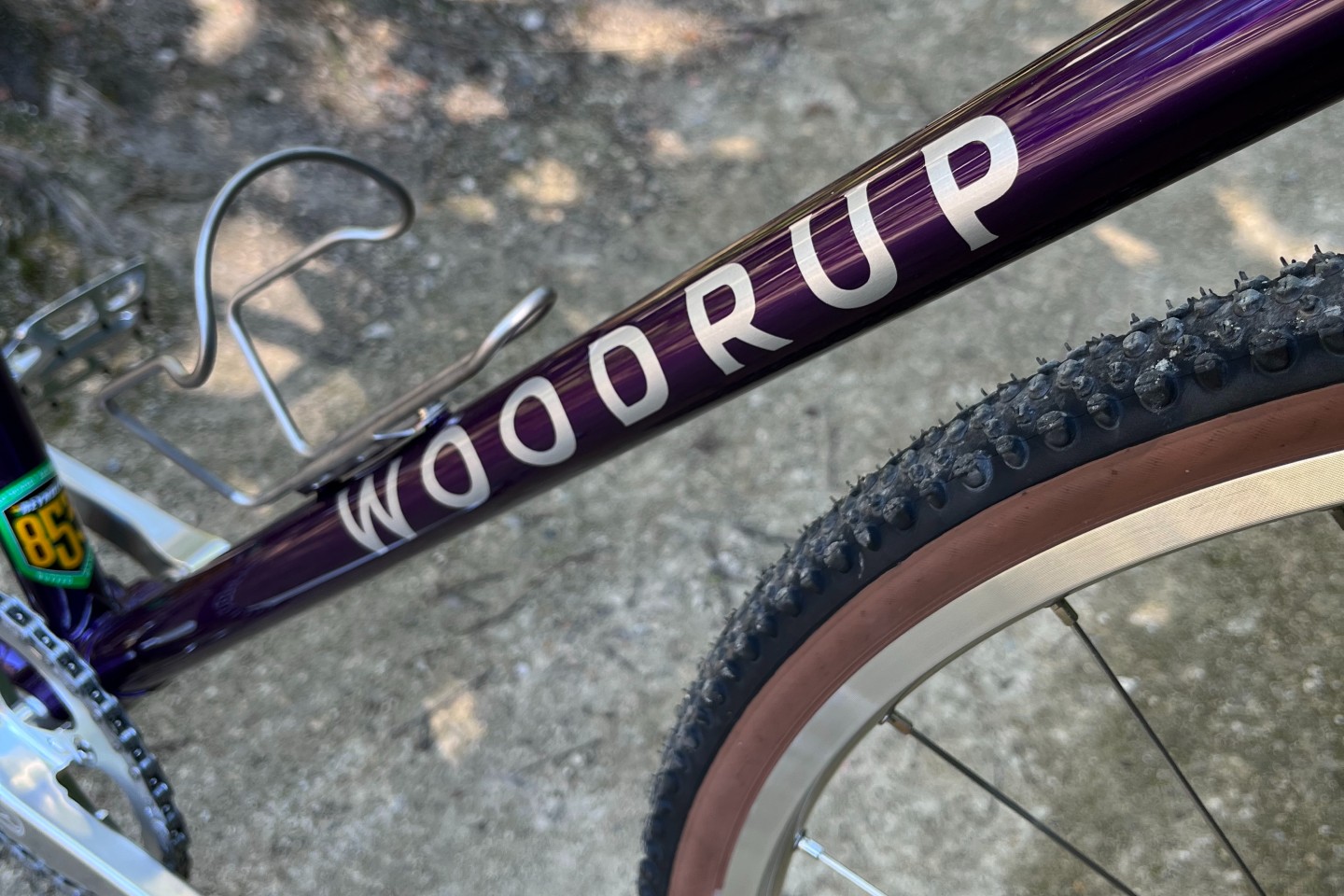
According to Woodrup’s Tom Uttley, who designed and specced the bike, the customer, Stu, originally had his interest piqued by the Woodrup F.A.B. (fixed and belt) but he preferred the classic aesthetic of a standard chain to belt drive.
In the end, they came to the conclusion that he’d be better off with something bespoke that fitted exactly what he wanted... and came up with something that was popular 120 years ago.
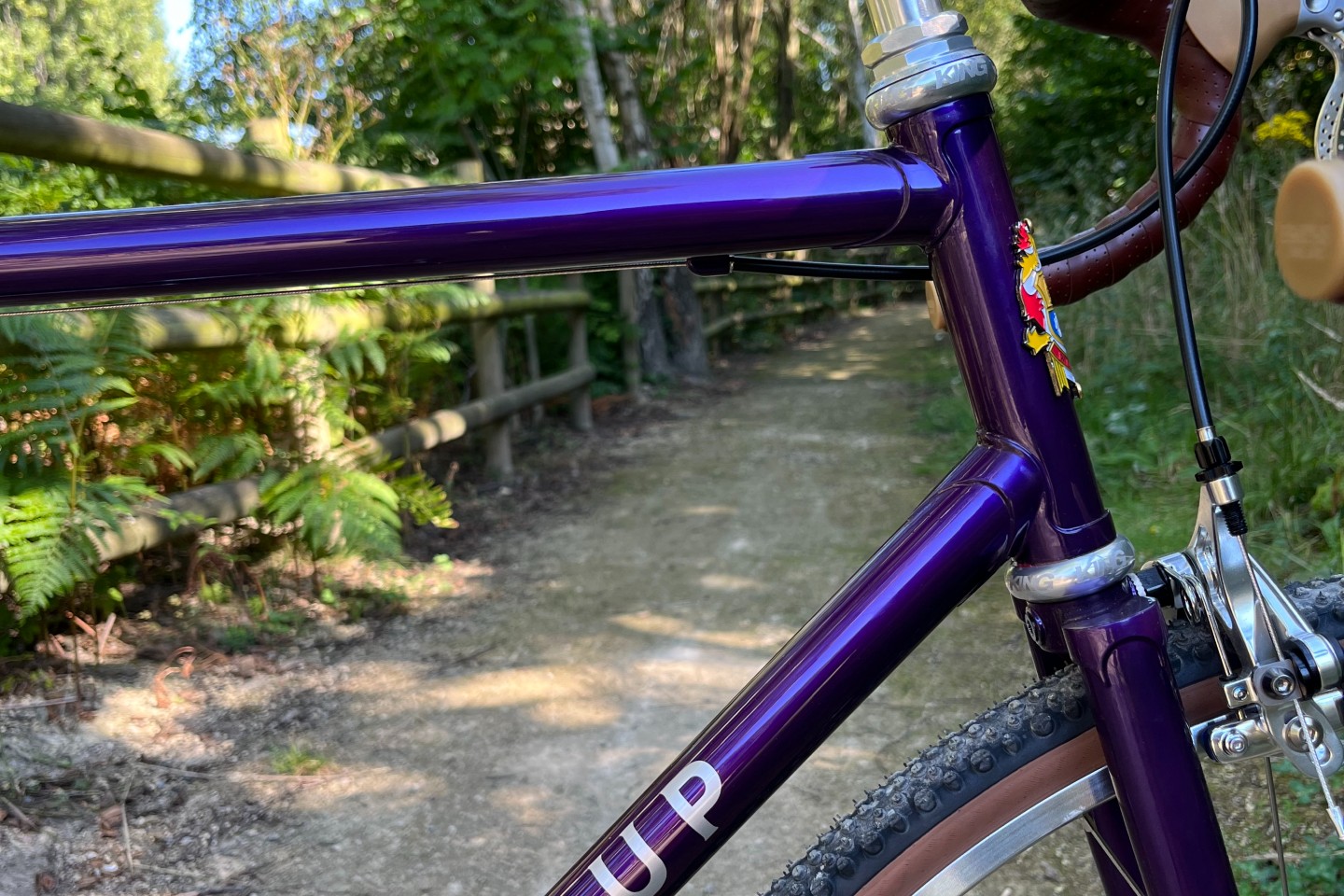
The classic aesthetic with modern performance became the brief. Stu wanted a steel frame, silver components, a threaded headset, quill stem and a Brooks saddle but he also wanted to run tubeless tyres and hubs with sealed bearings.
The latest race content, interviews, features, reviews and expert buying guides, direct to your inbox!
Woodrup did a full bike fit and also took measurements from the gravel bike Stu brought with him, adapting the geometry slightly for the more traditional steel frame that Woodrup built for him out of Reynolds 853.
It turned out that was the easy bit: “With the shortages and challenges of the bike industry at the moment in terms of supply, it was a bit of a headache getting everything together,” says Uttley.
The distributor of Phil Wood hubs was out of stock but Uttley sourced them from elsewhere.
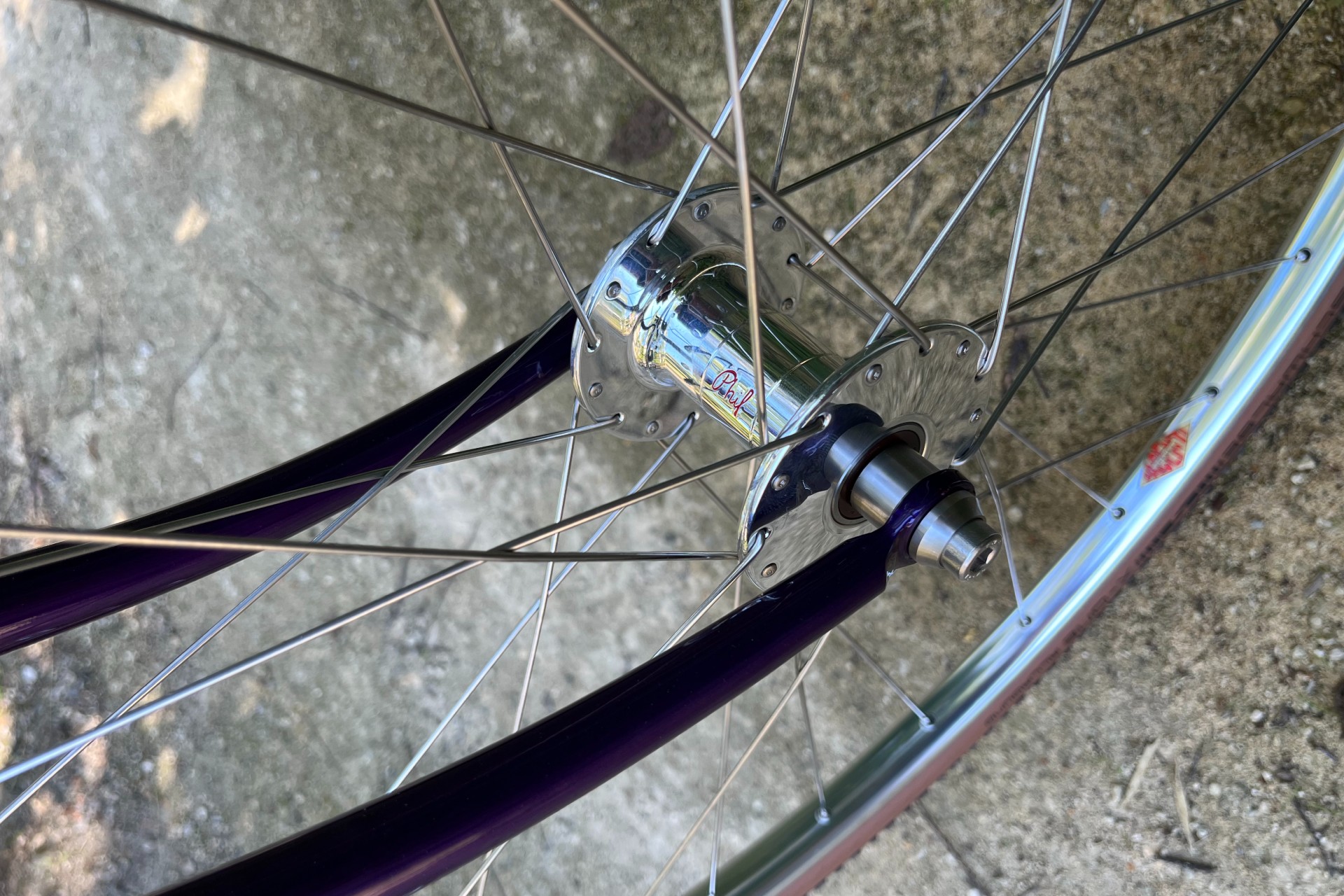
Pacenti only had the Brevet rims in the 28-hole version, which required 28-hole Phil Wood hubs. “I spent about three months trying to get those hubs sorted,” Uttley says.
“I originally wanted to put a Sugino chainset on. They used to be about £200 with the bottom bracket but now they’re almost £500. So we used a Velo Orange chainset and bits, Nitto bar, stem and seatpost, it’s all classic quality stuff, keeping it silver.”
According to Uttley, the market for tubeless compatible silver rims is shrinking every year and that’s why the Pacenti rims in the width he wanted were pretty much the only ones.
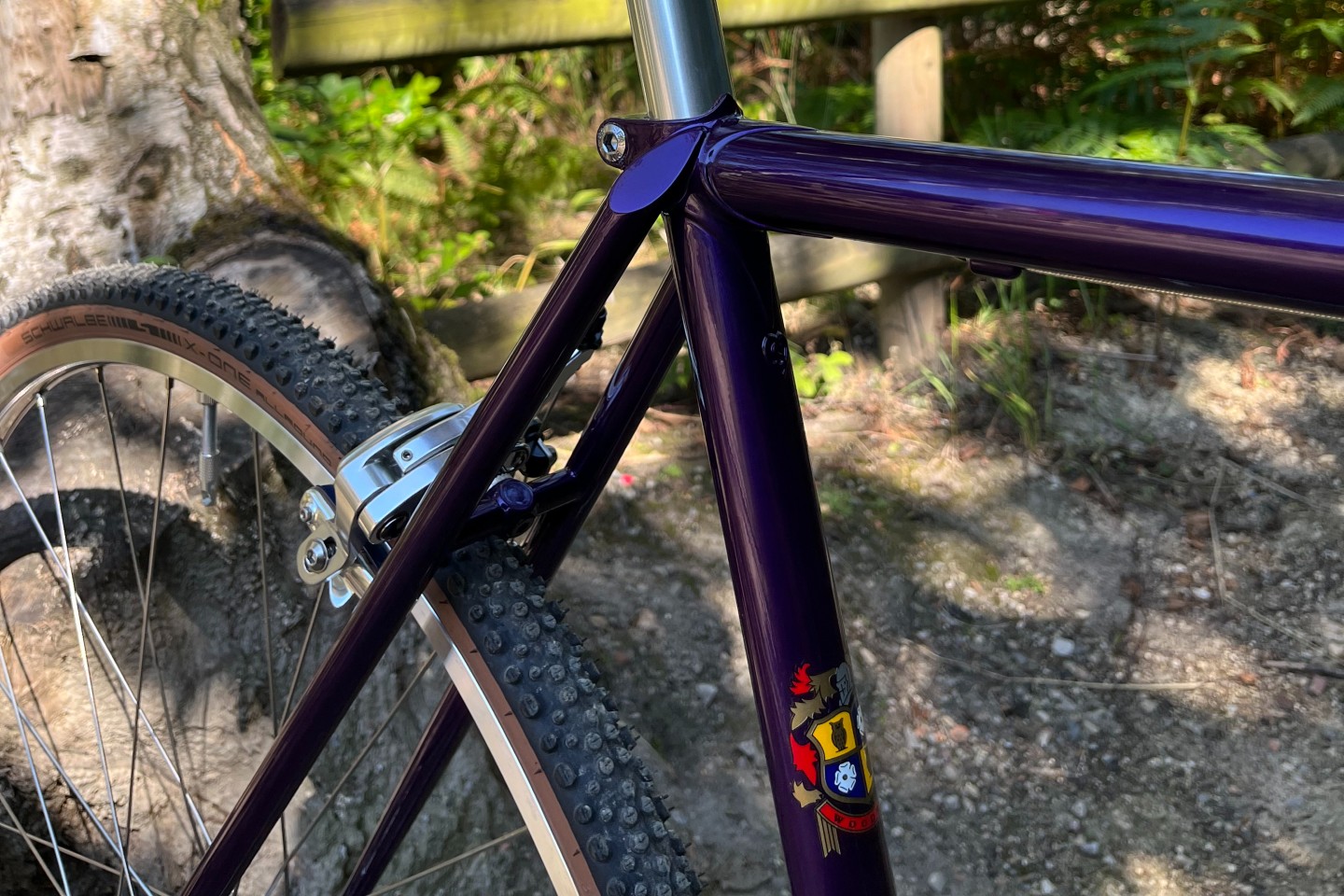
The brakes are mid-drop Velo Orange Grand Cru. “They’re basically the same as the top of the range TRP ones,” he continues. “TRP make them silver but the UK distributor doesn’t bring them in in silver, only black. But luckily Velo Orange rebadge them as 'VO'.
“For rim brakes they are insanely powerful. They’re machined aluminium. I had a little ride on the bike yesterday and they’re really bitey and really responsive.
“I’m a disc brake convert but I do think rim brakes have their place. If it had been disc the whole aesthetic would be different.”
So is the path racer the future of modern, mixed-terrain riding and commuting?
“Fixies were quite popular a while ago and there’s a lot to be said for the singlespeed commuter,” Uttley says. “Nice ride, low maintenance, no cleaning gunk out of your mech every week, good for keeping your cadence up and so on.
“The market is flooded with really cheap and nasty singlespeed bikes that weigh a ton. The Genesis Flyer used to be a really good choice but last year they changed it from steel to aluminium and rim brakes to disc brakes.
“Skinny steel frames do offer a bit more comfort than modern aluminium and carbon and a 28 or 32mm tyre is a lot nicer than a 23mm.”
Uttley concludes: “When I rode it yesterday it sailed along, really smooth, just lovely to ride. That’s a combination of a high-quality steel frame, nice components, decent tyres at a decent pressure.
“It’s one of those where you put it down on paper and imagine what it will look like and then when you put it together it works really nicely.”
Woodrup Path Racer full spec
- Frame: Reynolds 853 path racer and steel fork – clearance for up to 35c
- Wheels: Pacenti Brevet TLR 28h on silver high-flange Phil hubs
- Tyres: Schwalbe X One tan walls 33c set up tubeless
- Levers: TRP - RRL SR Alloy Drop Bar Lever - silver drilled with tan hoods
- Brakes: Velo Orange Grand Cru Long Reach Brakeset
- BB: Square Taper Sealed Bearing 110
- Chainset: VO Singlespeed 110 42t 170mm
- Chain: KMC
- Cassette: Track cog, lock ring + Clickster freewheel 17t giving 66.7GI
- Headset: Chris King 1" threaded silver
- Bar: Nitto M109 compact drop silver
- Stem: Nitto Quill 26mm silver
- Bar tape: Brooks brown leather
- Seatpost: Nitto S65 Silver
- Saddle: Brooks brown B17 Special
- Price: £3,674 inc VAT
Simon Smythe is a hugely experienced cycling tech writer, who has been writing for Cycling Weekly since 2003. Until recently he was our senior tech writer. In his cycling career Simon has mostly focused on time trialling with a national medal, a few open wins and his club's 30-mile record in his palmares. These days he spends most of his time testing road bikes, or on a tandem doing the school run with his younger son.
